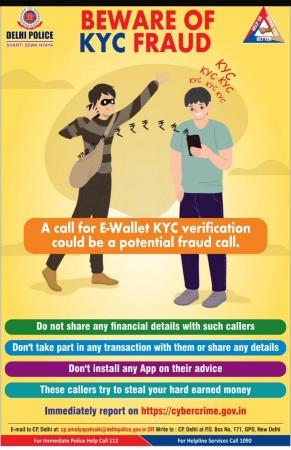With the rise of digital payments in India, consumers have started heavily relying on mobile wallets like Google Pay, Paytm and others. With the multifold increase of users of these mobile wallets, it has become a favourite playground for cybercriminals who are constantly trying to drain people's bank accounts.
Several incidents have occurred where e-wallets abuse has led to people losing lakhs of rupees to scams. Criminals have found unique tactics to fool unsuspecting users and stealing money from them in a matter of minutes. Google, Paytm, PhonePe and others have constantly cautioned its users about the ever-evolving frauds, but the risk is never completely eliminated.
To further emphasise on the dangers of e-wallet scams, Delhi Police has listed a set of practices that consumers must never do. Most often, fraudsters send hoax SMS or call mobile wallet users with alarming reasons, such as account suspension, account block or KYC verification. There are instances where fraudsters also lure users with the promise of rewards that may seem too good to be turned away.

Google Pay, Paytm, PhonePe users must never do these things
Mobile wallets serve hundreds and thousands of users across India. Paytm alone accounts for more than 35 crore users. Other mobile wallets like Google Pay, PhonePe, Mobikwik, Yono SBI, ICICI Pocket, HDFC Pejap, Bhim App, Amazon Pay and Freecharge command a massive number of the userbase, which gives cybercriminals a lot of scope to carry out attacks.
As a mobile wallet user, it is important to follow a set of guidelines and in most cases, it is simple negligence on the users' end that caused financial loss. The Delhi Police has listed down some important tips for all mobile wallet users to keep them safe from frauds.

"Don't get tricked. No Payment App verifies KYC over a phone call. Most of these calls/SMSs intend to cheat you," Delhi Police tweeted.
- Don't click on any link sent in any message
- Don't install any App on caller's advice
- Don't do even a Rs.1 transaction
- Don't call on number given in KYC SMS
The Delhi Police also insists users must never share any financial details with such callers or take part in any transaction. These callers are always trying to steal money from users. Furthermore, users must also report such suspicious calls to the police.

















